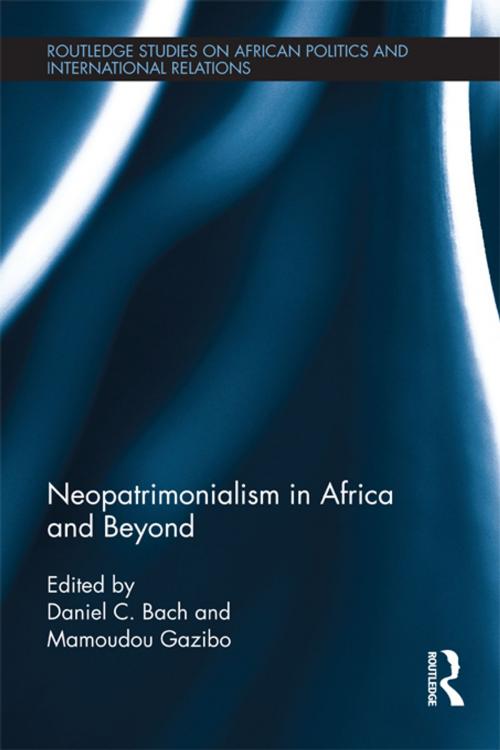| Author: | ISBN: | 9781136506208 | |
| Publisher: | Taylor and Francis | Publication: | March 1, 2013 |
| Imprint: | Routledge | Language: | English |
| Author: | |
| ISBN: | 9781136506208 |
| Publisher: | Taylor and Francis |
| Publication: | March 1, 2013 |
| Imprint: | Routledge |
| Language: | English |
Neopatrimonialism, a system whereby rulers use state resources for personal benefit and to secure the loyalty of clients in the general population, is central to any teaching or conceptualisation of contemporary African politics. This book is a theoretical and comparative study of neopatrimonialism in Africa and across world regions.
Although such practices are widespread in other parts of the world, the African neopatrimonial state has also become a global prototype of the anti-developmental state. This volume calls for a reappraisal of the genesis and interpretations of the concepts of patrimonialism and neopatrimonialism. Expert contributors consider recent debates in Africa through the study of democracy, clientelism, the ‘big man’ syndrome (Kenya), the rise of ‘godfatherism’ (Nigeria), ‘warlordism’ (Liberia) and the neopatrimonial state on a day to day basis (Niger). They discuss patrimonialism and neopatrimonialism from Latin America to Europe, Central Asia and Asia-Pacific, to weave a comparative analysis of the interplay between public policies and private interest.
Neopatrimonialism in Africa and Beyond is an important and timely volume that will be of interest to students and scholars of international politics, African studies, sociology and international development.
Neopatrimonialism, a system whereby rulers use state resources for personal benefit and to secure the loyalty of clients in the general population, is central to any teaching or conceptualisation of contemporary African politics. This book is a theoretical and comparative study of neopatrimonialism in Africa and across world regions.
Although such practices are widespread in other parts of the world, the African neopatrimonial state has also become a global prototype of the anti-developmental state. This volume calls for a reappraisal of the genesis and interpretations of the concepts of patrimonialism and neopatrimonialism. Expert contributors consider recent debates in Africa through the study of democracy, clientelism, the ‘big man’ syndrome (Kenya), the rise of ‘godfatherism’ (Nigeria), ‘warlordism’ (Liberia) and the neopatrimonial state on a day to day basis (Niger). They discuss patrimonialism and neopatrimonialism from Latin America to Europe, Central Asia and Asia-Pacific, to weave a comparative analysis of the interplay between public policies and private interest.
Neopatrimonialism in Africa and Beyond is an important and timely volume that will be of interest to students and scholars of international politics, African studies, sociology and international development.















